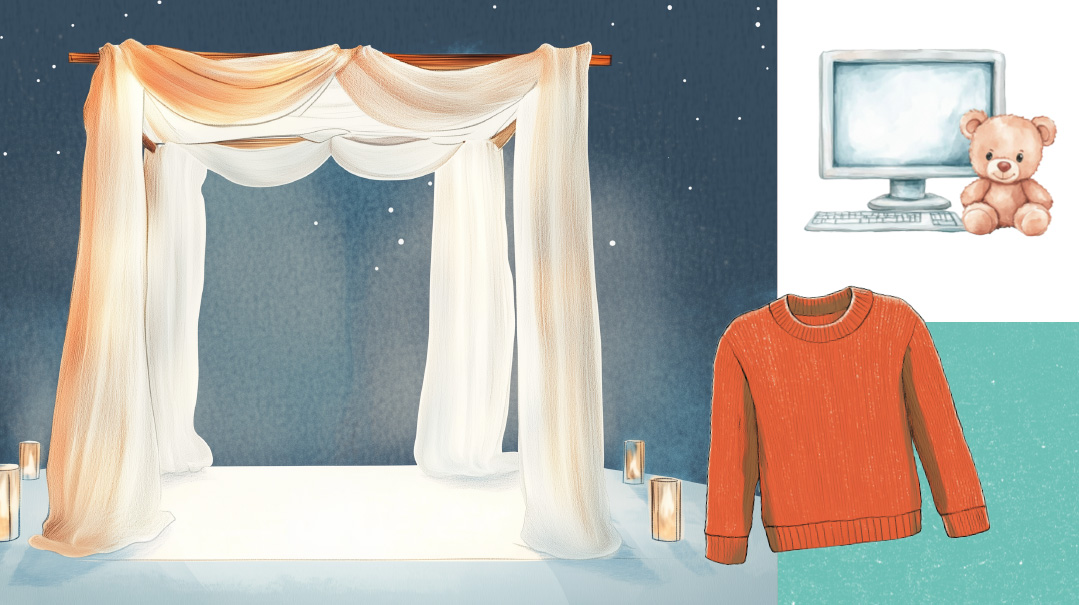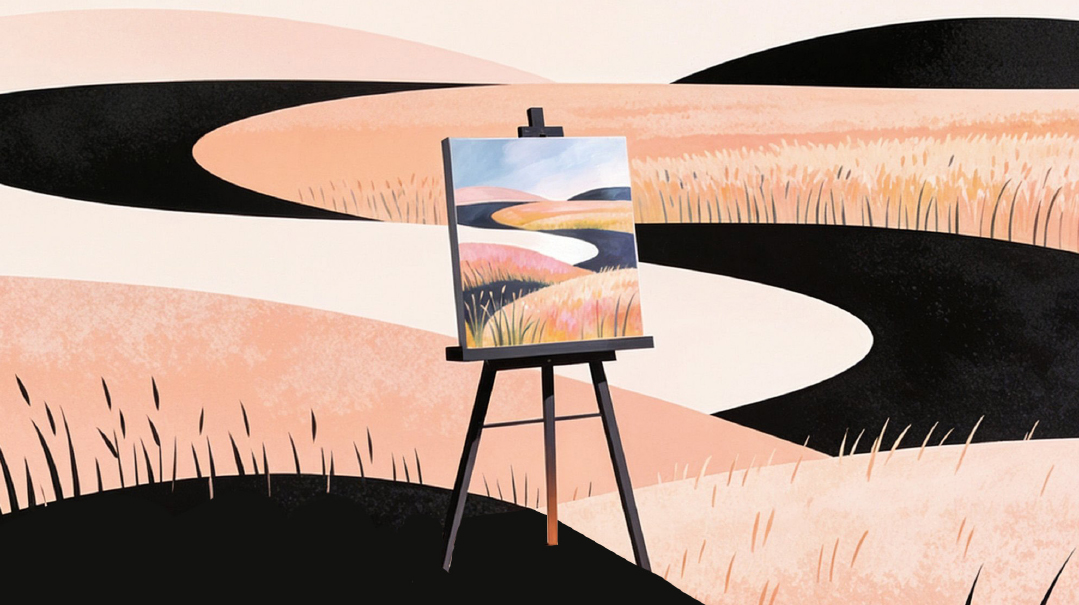Our Nation’s Strength and Beauty
| March 25, 2025“Could there be a greater demonstration of the strength and beauty of our nation?”

Around the Campfire
By Mindel Kassorla
I
was attending the wedding of my sister’s nephew, Mordechai Goldberg, when Mr. Shauli Shamriz — father of the chassan’s commander, Shai Shamriz z”l, who was killed in Gaza in December of 2023 — was called up to the chuppah.
There wasn’t a dry eye in the crowd as, under the stars of the night sky, Mr. Shamriz recited a tefillah for the safety of Israeli soldiers. Then, the men in the crowd, among them the chassan’s friends from the army, began to sing “Im eshkachech Yerushalayim…”
These boys, who had endured so much, witnessed such unimaginable horrors, and carried it with courage and faith, were raising their voices to recite this pasuk. Despite the magnitude of their pain, still they sang, they davened, they turned to Hashem.
The tinkling of broken glass ended the song. I looked around and thought: What place does the pain of the Churban and galus have at this simchah? Why ask a father in mourning to address a group who came together to rejoice at their friend’s marriage? Amid the hope and promise of a couple starting their lives together, why sing these difficult words here, now? It’s too hard. The pasuk tells us we must remember, but can we not at least have enough space from the pain to feel the joy?
As an answer to my question, the sounds abruptly changed again. The same men who had been meditatively swaying to the slow melody were now jumping up and down and screaming, “Od yishama….”
I turned to my niece, the chassan’s cousin, and said, “Could there be a greater demonstration of the strength and beauty of our nation?”
She nodded, for she, along with everyone else there, understood that if there was any message the couple needed — we all need — to hear at this auspicious moment, it’s this: We can cry, we can fall down, we can be drowning in pain. And by the same measure we can, even abruptly, redirect; we can rise, we can sing in joy, and praise Hashem for giving us this moment.
That is truly something to celebrate.
In Real Time: Don’t Be a Mama Bear
By Esther Kurtz
MY
friend Devorah* has a child with special needs. She recently received a diagnosis, and the speech therapist told her that her daughter now qualified for ABA services.
But more services meant more bureaucracy. Lots of it.
Frustrated, Devorah wondered why getting help had to be so complicated. If her daughter was meant to have these services, wouldn’t they just come? Her cousin’s words echoed in her mind: “You have to fight for your kid! Go all Mama Bear.”
But Devorah wasn’t the Mama Bear type. Still, everyone insisted this was how things were done. It niggled, felt wrong to be expected to shake down other people, make endless calls and send countless emails.
Determined to keep it simple, she sent one email to a coordinator. That was it. She wasn’t going to exhaust herself. If her daughter was meant to have more services, she would have them.
The next day, the coordinator called. “All I need is an email from you giving consent to send the diagnosis to the Department of Health.”
That’s it? Devorah quickly sent the email. Shortly after, she received the message, “I received the report and sent it to the Department of Health. Services should be approved quickly.”
End of story.
The Chovos Halevavos says that when it comes to health, everything is in Hashem’s Hands. No one can heal or harm without His will. Our role is simply to do “normal” hishtadlus, engaging the system of cause-and-effect Hashem created to bring events into the world.
Mama Bears aren’t necessary — just turn to Papa instead.
Stories to Inspire: The Red Sweater
By R. Biller
B
iting winds and gray skies heralded the dawn of day in Auschwitz. During roll call, the loudspeaker screeched: “Achtung! We need one hundred women to volunteer to work at a different location.”
Two sisters, Goldie and Gittel, eyed each other. Gittel whispered, “Don’t even think of going — you know we’ll all be killed at this new place.”
Later that night, asleep on her narrow plank, Goldie saw the tall figure of her father, who’d passed away before the war.
She screamed, “Tatteshi, is it really you? And why are you wearing a bright red sweater?”
“Hush, my daughter,” her father responded warmly. “I’m here because I’ll be accompanying you and Gittel on the transport tomorrow. Make sure you volunteer to go on it. I’m wearing this sweater because we must dress warmly for this winter weather.”
Goldie woke up, startled. What a vivid dream that was!
At roll call, she wasn’t surprised to hear the very same announcement: “Achtung! We need one hundred women to volunteer to work at a different location.”
“Gittel,” said Goldie. “We’re volunteering. Der Tatte appeared to me in a dream, promising to join us. I feel strongly this is the right thing for us to do.”
The two sisters joined the other emaciated inmates squeezed into the waiting truck.
Their new camp had been erected as a model camp to fool the Red Cross into believing the stories of extermination camps were untrue.
The food rations were more generous, the clothing warmer, and more time was allotted for resting. They remained there until they were liberated in 1945.
Goldie and Gittel were blessed with generations of Torahdig families, who were enraptured by their Babbi’s war stories, especially this one.
(Originally featured in Family First, Issue 937)
Oops! We could not locate your form.







